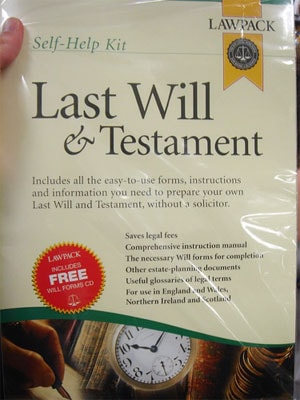
What to do before signing a nursing home agreement

The Rising Costs of Dementia Care

Long-Term Care Insurance in Massachusetts

4 Steps to Get Your Online Accounts in Order
Have you given any thought as to what would happen to your internet presence after you pass away? With a vast majority of adults now using online services such as email and social networking sites on a regular basis, digital estate planning is becoming increasingly important. Without a plan in place, your family may not be aware of the extent of your digital assets and may not be able to access your online accounts after you’re gone.
What is a Digital Asset?
Usually when we discuss assets, we think of things that exist in solid form and have tangible value. However, in this digital age, that definition isn’t broad enough. Our digital assets can include things like digital music and books we’ve purchased, as well as artwork we might have created online. Also, any account you create on a content-sharing site like Facebook or Picasa can be considered an asset, itself.
Unfortunately, the law in this area has yet to catch up with the modern digital age. Currently, only five states have laws regulating access to a deceased person’s online accounts. Though Massachusetts is working on legislation, it has yet to enact a law.
Because of privacy concerns, online companies like Facebook and Twitter refuse to grant surviving family members access to their members’ accounts. However, some companies are trying to address this growing issue. For example, Google created the “Inactive Account Manager,” which allows users to choose what will happen to their Gmail messages or other data if their accounts become inactive.
With the state of the law uncertain, it is important to revise your estate plan to ensure that your digital assets are disposed of according to your wishes. The government now recommends that people create a social media will.
Here are some steps you can take to get your digital affairs in order.
- Inventory your digital assets: determine what digital content exists and where it is located
- Decide what should happen to each digital asset or account after you’re gone
- Designate a digital personal representative to dispose of your online assets and accounts according to your wishes
- Create a separate document containing information on how to access online accounts, including usernames and passwords (since a will is a public document, it is best not to write this information in your will)
There are also a number of websites that have sprung up recently that can help you keep track of your online data and release it to those you designate after you pass away. Some include Legacylocker.com, Assetlock.net, and Deathswitch.com.
If you have not yet made provisions for what will happen to your online presence after you’re gone, contact Attorney Kristina Vickstrom at 508-757-3800. We will review your digital assets and help you incorporate them into a comprehensive estate plan.
Retirement Home Fees and Tax Deductions
Here’s some good news for people who live in – or are thinking of entering – a “continuing care retirement community.” These are communities for older people that provide an entire continuum of care, from independent living to nursing home, so that residents can “age in place” and not have to move elsewhere if their faculties start to diminish. These communities are an appealing option, but they can be very expensive. The good news is that there is a tax deduction available that could help defray the costs.
The tax break stems from the fact that if your medical expenses are more than 7.5 percent of your adjusted gross income (or 10 percent if you’re under age 65), you may be able to make a tax deduction for some health care costs.
Because continuing-care communities provide a full range of health services, when you enter a long-term contract with one, the IRS considers that part of your fee is a prepayment of future health care expenses. Therefore, it’s possible that you can make a tax deduction of at least part of your entrance fee and your monthly fees.
The key is that it doesn’t matter how much health care you actually receive in a given year. The percentage of your fees that is considered a prepayment of health care expenses depends on the overall, aggregate percentage of the community’s expenses that goes toward health care. This percentage varies from community to community, but is often in the 30 to 40 percent range. (Your community should be able to provide you with its exact figure.)
The deduction generally works with regard to the entrance fee only if the fee is non-refundable. However, if the entrance fee is only partially non-refundable, you might be able to take a deduction based on the non-refundable portion.
You should also know that if children or other family members help a resident to pay the entrance fee or monthly expenses, they might also be eligible for the tax break.
When you’re ready to discuss your next step in elder residence, contact Attorney Kristina Vickstrom at 508-757-3800.
“Do It Yourself Will” Websites Panned by Consumer Reports

The magazine analyzed three such sites – LegalZoom, Rocket Lawyer, and Quicken WillMaker Plus – and ran the results by a law professor who specializes in tax and estate law. All three “do it yourself will” websites had a variety of problems, according to the study.
The problems included:
Outdated information.
Two sites applied federal tax rules that were already months out-of-date.
Not state-specific.
The law of wills varies from state to state, but the programs didn’t take into account variations in state law, including state lax law.
No tax advice.
None of the programs offered tailored advice on how to reduce taxes – a critical flaw.
Incomplete.
The websites often lacked provisions on how to handle business interests, electronic assets, trusts for children with special needs, trusts for pet care, domestic partnerships, multiple trustees, how executors are to be compensated, etc.
No flexibility.
The websites frequently made arbitrary choices and didn’t allow bequests to be handled differently. And some added additional provisions to trusts without any warning.
The professor described one will produced by Rocket Lawyer as “primitive,” and another as “a mess.”
The magazine noted that LegalZoom allows you to pay extra money to receive attorney “support,” but when it contacted the company, it was told to type questions about arbitrary or missing provisions into a box and that these would be handled later in a hard copy of the will. According to Consumer Reports, even though it paid the extra fee, this never happened.
Using a “do-it-yourself will” website to create your will can be “like removing your own appendix,” according to the Consumer Reports article.
There’s simply no substitute for a lawyer who can understand your wishes and goals, and provide legal and tax advice that’s suited to your specific needs. Although it’s best to contact us first, if you have already paid for one of these services call us today to review your will and make sure it accomplishes your goals and is appropriate for your unique situation.
Photo Credit: lukemontague
Medicaid Patients Risk Eviction
Some residents of assisted living facilities who are covered by Medicaid are at risk of being evicted if they leave the facility for a period of time – even if they leave merely for a temporary hospitalization.
This is a significant problem that seniors should be aware of when they are planning for long-term care.
In general, Medicaid will pay nursing homes to hold a room for a Medicaid recipient who is temporarily absent due to a hospitalization. This entitles the resident to return to the first-available room.
However, most states don’t make similar “room-hold” payments to assisted living facilities. And there is no law requiring assisted living facilities to give priority to returning residents.
As a result, even if an assisted living resident leaves for only a short hospital stay, the facility could refuse to accept the resident once he or she is ready to return. The resident might end up having to find a nursing home instead.
Although the federal government has authorized state Medicaid programs to make “room-hold” payments to assisted living facilities, only a handful of states (including Georgia, Illinois, Montana, and Washington) have adopted such programs so far.
Should you have any questions about your Medicaid planning to avoid eviction, contact Attorney Kristina Vickstrom at 508-757-3800.
[photo credit: MyFutureDotCom]
Five Things to Discuss With Your Spouse to Develop a Retirement Plan
You may have a vision for your retirement plan, but does your spouse share that vision?
A recent study by Fidelity Investments shows that many couples are not in accord about their retirement plan. For example, one-third of couples approaching retirement disagree about or don’t know where they are going to live after they retire, and 62 percent don’t agree on their expected retirement ages.
Here are some important things to discuss with your spouse as you get ready retire and develop a retirement plan:
1. When to stop working. Many factors go into a decision about when to retire, including job enjoyment and financial needs. But you’ll also want to include in your retirement plan how to maximize your Social Security benefits. There are a number of different strategies for when each spouse should file for various types of benefits, and couples who do it wrong can leave a lot of money on the table.
2. Finances. Both spouses need to understand their financial situation to develop a retirement plan. The survey found that very often, one spouse is much less involved in planning retirement finances than the other, and might not be ready to manage financial affairs should the need arise.
3. Lifestyle. Do you want to travel? Volunteer? Or relax on a beach somewhere? It’s important to have a conversation about your hopes and dreams for retirement. You can start by creating individual wish lists and then comparing them when developing your retirement plan.
4. Health care. Make sure you and your spouse have adequate health care coverage, either from Medicare or an employer-based plan. You’ll also need to understand the rules regarding Medicare coverage and when to sign up for it.
5. Long-term care. Unfortunately, one or both spouses will likely need some type of long-term care at some point. There are things you can do to make it easier on yourself if the need arises. Talk to your elder law attorney about putting a plan together – doing it early will save lots of headaches and expense later.
Hopefully your respective visions for your post-career life are similar. When you’ve taken these steps, it’s now time to put your dream plans in motion. To ensure that your long-term care plans for retirement are met, it’s vital that you speak with a qualified elder law and estate planning attorney so your wishes are always met.
Contact us when you are ready to make your retirement plan a reality.
Settlement Over the Medicare Improvement Standard Will Improve Coverage for Some
If you, or a loved one, depend on Medicare for ongoing care of a chronic or degenerative disease, you may be familiar with the Medicare Improvement Standard.
Medicare is health national insurance for people over age 65, the disabled, or those with end stage renal disease. For decades, the Medicare Improvement Standard meant that coverage for physical, occupational and speech therapy and some inpatient skilled nursing was denied by contractors processing claims for many people who had reached a plateau in their treatment, that is to say, for those who were not improving.
Medicare is supposed to pay for reasonable treatment as long as a doctor has prescribed it. For in-home care, a doctor must have certified that you are, in fact, homebound and have prescribed treatment that only a skilled practitioner can provide. This “skilled practitioner rule” keeps Medicare from paying for assistance with everyday activities like bathing and dressing.
Consider the case of Glenda, she is 76 and rendered disabled by diabetes. She is both blind and has suffered amputation of a leg and several toes. She was the lead plaintiff in the case that led to the settlement, and under the Medicare Improvement Standard, had been denied coverage of the skilled care she needed due to the fact that her condition was chronic and did not improve. This unofficial policy has been frustrating to many. It is often painfully obvious that those suffering chronic or degenerative diseases will not and cannot improve. But, the kind of skilled care covered by the Medicare Improvement Standard settlement can stabilize or slow the progression of such diseases. These patients can now prevent painful and costly complications.
The Medicare Improvement Standard settlement requires the Centers for Medicare and Medicaid Services to clarify to their contractors that home and nursing home therapy and nursing services for Medicare beneficiaries are not dependent “on the presence or absence of a beneficiary’s potential for improvement from the therapy (and nursing care), but rather on the beneficiary’s need for skilled care.” This language also pertains to outpatient therapy services. This clarified policy is know as the “maintenance coverage standard.”
The Center for Medicare Advocacy, co-counsel for the Plaintiffs, stresses that the new standard applies now, and that Medicare patients denied coverage under the old “medicare improvement standard” should advocate for themselves and appeal those denials.
It is important to remember that this Medicare Improvement Standard settlement does not affect the need for long-term care planning. Without careful planning you may still have to pay for years in a nursing home when you can no longer handle basic tasks of daily living and staying in your home is no longer practical.
If you, or a loved one, would like more information about long-term care planning contact us. Proficient in Estate Planning, Elder Law and Long-Term Care/Medicaid (MassHealth) Planning, Attorney Kristina Vickstrom can help you understand your rights and any remedies that may be available to you.


